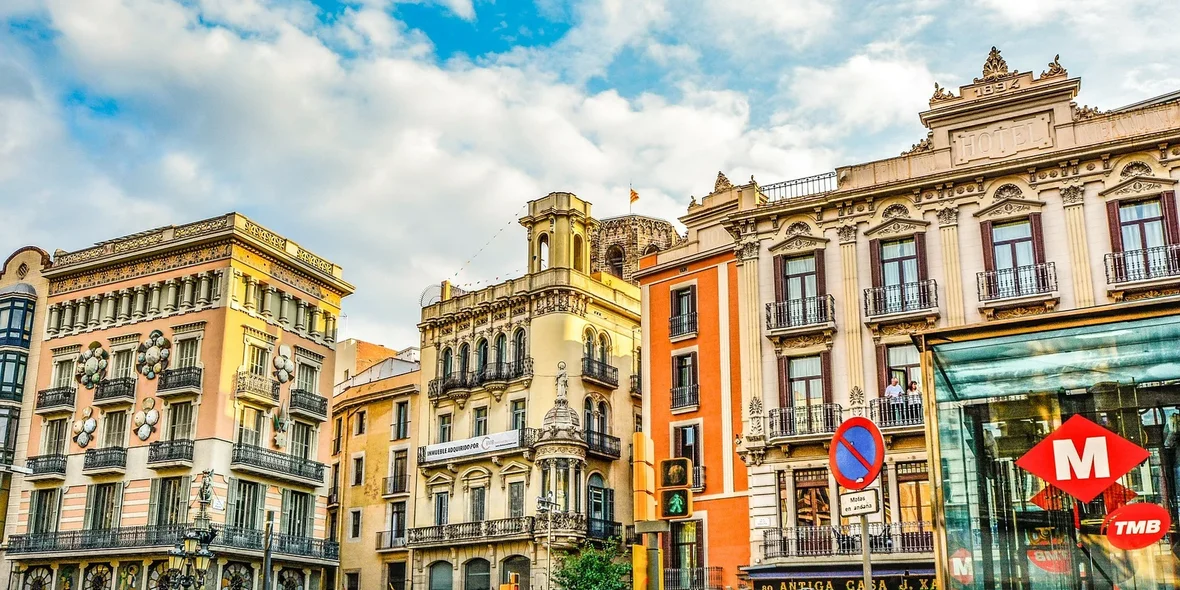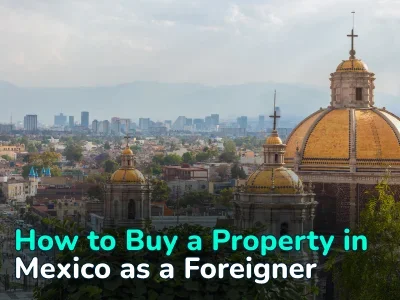
Spanish Mortgage: Getting a Mortgage in Spain
How to acquire mortgage in Spain?
A foreigner seeking to buy a home in Spain must first open up a bank account in a Spanish bank. Mortgage in Spain for foreign citizens is quite accessible, unlike many other European countries, obtaining a Spanish mortgage when buying property simply depends on what country you reside in permanently.
For EU citizens, banks in Spain can provide up to 70% of the assessed value of real estate. For passport holders of non-European countries, up to 60%.
Acquiring a Spanish mortgage depends on several factors, such as: the buyer’s age, income, credit history and real estate valuation.
All official documents must be translated into Spanish or English, including:
- Personal income tax for the past 2 years
- Certificate of employment (where your monthly salary is announced)
- Bank statement for the last two years (from your country)
- Documents for the ownership of real estate (in your country)
- Credit history.
When banks receive these documents, they in turn, send them to their court translators to obtain an official Apostille stamp. Accordingly, the bank will charge you with a fee for both the translation of documents and the official Apostille stamp.
The process of acquiring a Spanish mortgage
The process of obtaining a Spanish mortgage is quite long, and can take anywhere from three weeks to three months. It all depends on how banks value both the buyer and documents. Banks have the right, in addition to standard documents, to request additional documents at their discretion.
The final document of the bank on the approval of the mortgage is valid for three months. If clients do not move into the acquired property during this period, the entire process of collecting documents will have to restart, with the bank requesting new original documents from the buyers.
Spanish Mortgage Approval
An important point to keep in mind is that loans are approved as a percentage of the assessed value. Real estate appraisal is determined by independent appraisal companies, that always slightly underestimate the appraised value of real estate. Before the global crisis, real estate valuation could be found even higher than its market price. This could be influenced by factors such as a view of the sea or golf courses. Now, real estate valuation is almost always lower than its market value.
So, when looking at the promised 60% loan, make sure to look at the amount for which these 60% are considered. In the end, the 60% loan of the assessed value can mean 45% to 50% of the market value of the property. This especially applies to secondary housing, as estimates may differ from the market value by 25% to 30%.
When buying a new home, the estimated cost is usually very close to the market value. If the purchase is made by two people, for instance, a married couple, then all the above documents must be provided for both the husband and wife.
Repayment of Spanish Mortgage
The Spanish mortgage loan can be acquired for a period of 5 to 20 years (depending on the buyer’s age and goals). By Spanish law, you have the right to repay the loan prematurely, paying a small penalty for it. If you repay the loan in the first 5 years after receiving the mortgage, then the penalty will be 0.5% of the amount and, if this happens after 5 years, the percentage of the penalty will be 0.25%.
One important condition for obtaining a loan is a compulsory life insurance obtained through a Spanish bank. Purchased property must also be insured.
Spanish Mortgage Interest Rate
The mortgage interest rate is floating and depends on the European Refinancing Rate (Euribor), which is currently very low. Now, (July-August 2019) the interest rate changes from 2.75% to 2.95% per annum. If the buyer prefers to repay the loan in a shorter time, then the possibility of receiving an even lower annual interest is very high.
Spanish Bank Account for Non-Residents
If you intend to spend less than 6 months per year in Spain, then you are considered a non-resident, and therefore, must open a non-resident bank account. In order to open an account in Spain, you need to provide a good reason for doing so (previously, anyone had the right to open an account). Buying a property is a good reason to open a bank account in Spain. Taking into account the changes set forth by the European community, the following procedure applies to non-European Union citizens.
The following documents are needed to open a bank account:
- Passport (foreign and domestic)
- Personal Income Tax for last 2 years
- Certificate of salary from work for the last 3 months.
- Bank statement for the last year from your own country (banks will check the amount of money in the account used for the purchase of a property)
After submitting the documents to the bank, they are translated into Spanish or English (by the official translator of banks, this is a paid service) and sent to the main office of the bank. The bank account can be activated only after the approval of the main office.
It is important to note, that while the account is inactive, you are not permitted to place any money into it. Also, all banks are required to provide a copy of the NIE number after opening an account, within a month. Otherwise, the account is blocked. The first payment to your Spanish account must be made from your own bank account in your country.

Types of banks in Spain
There are several types of banks in Spain, you can find both local and foreign ones, there are even banks similar to Lloyds bank - La Caixa – their ATMs can be found in any location in Spain, even in a rural Spanish village. All opportunities offered by Spanish banks can be divided into two parts: savings account (cuenta de ahorro) and debit account (cuenta debito). They differ in terms of use and required documents. For opening an account as a non-resident spending less than 6 months per year in Spain, you will need:
- A document confirming your identity
- Passport
- NIE number
- Personal income tax
- Certificate of employment
- Contract for acquired property
The residents’ bank account: The difference between a non-resident and a resident is that the resident pays a tax percentage. If you plan on staying in Spain for more than 6 months (more than 183 days per year) you are required to open an account as a resident. To do this, you will need to provide, in addition to the above document: a residence permit in Spain.
What is an NIE number?
The identification number of the foreigner. The NIE number is necessary for all foreigners planning on having an official status in Spain. This is especially required for the purchase of property or opening of company.
To obtain the NIE number, you will need:
- A copy of a passport with a valid visa
- A stamp on crossing the EU border
- Photo 3x4
- Copy of the contract for the purchase of property (and payment of it)
- A completed form from the police station.
The foreign number is issued by the Spanish National Police. This process can be done independently, but it is recommended to use a specialist, since all documents must be 100% accurate (to avoid going to the police station several times).
At the moment, there are some difficulties in obtaining the NIE numbers associated with the changed schedule of work at the police station. Getting a meeting at the police station can take up to one month. For this reason, it is advised to contact legal companies that are accredited by the police.
New rules for transferring funds to Spanish accounts
After opening a bank account in any Spanish bank, it is important to remember that transfers must be made from your personal account in your country of permanent residence.
In addition, before the first transfer of money, you must have a translated document (preferably into Spanish) providing your official income in your country. Otherwise, the funds that come into a bank in Spain are blocked (not for a long time) until these documents are received. If the documents are not sent to the bank, the money will be returned to the payer’s bank account in their country.
Looking for Spanish Properties?
This article is sourced from our partner company MASA International, one of Europe’s leading real estate companies in Spain. They have been working with Spanish real estate for 38 years, helping thousands of foreigners find their ideal homes in Spain. MASA International can work with clients from any country, attending to them in their own languages. Check out their latest properties in Spain here.
























